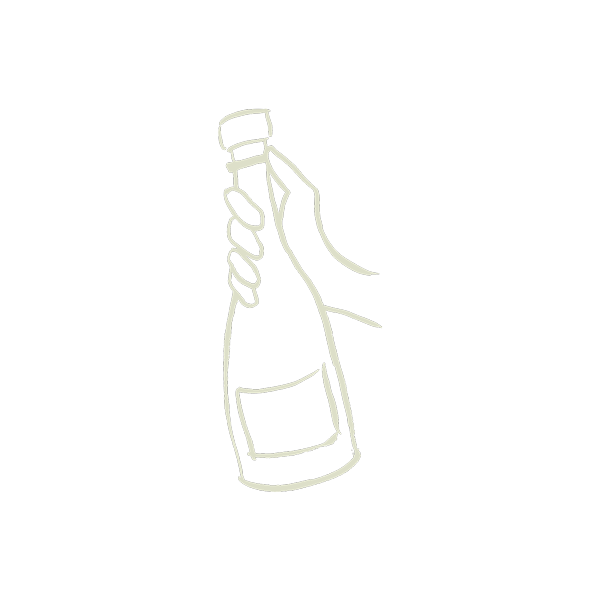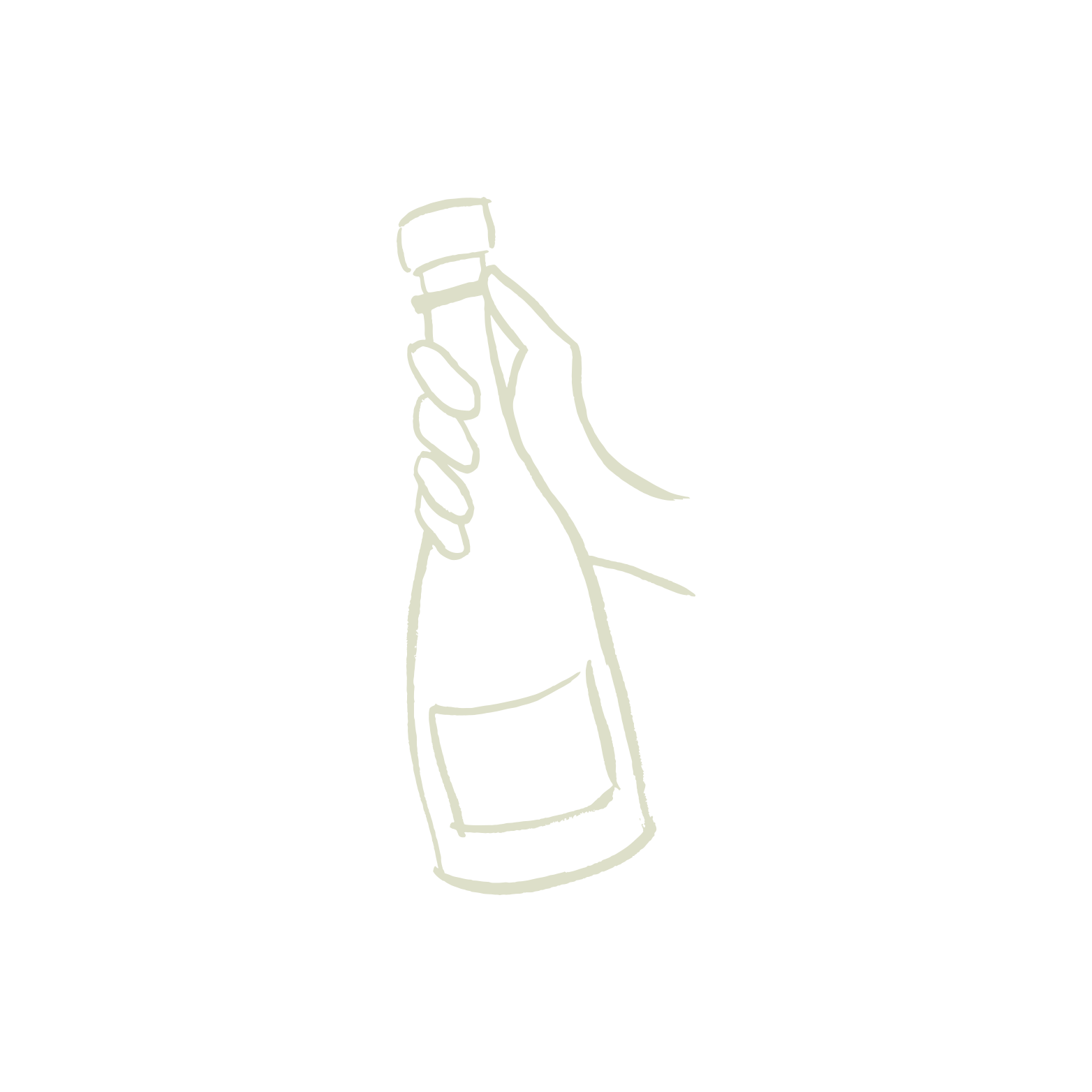Age of the Viticultrice
For 200 years, women have played a pivotal role in the shaping of the Champagne industry — stepping up in times of crisis and persevering with courage and grace when it mattered the most. So it’s surprising that, while not unheard of, it is still quite rare for a woman to be at the helm of a Champagne enterprise.
According to the Comité Champagne, the trade association for the Champagne industry, about 10 percent of cellar masters, aka head winemakers, are women. But the tides may be changing, especially when it comes to grower Champagne, as a new generation of women finds themselves next in line to take over their family’s grower Champagne estate.
As a champion of the world’s best bubbles, fatcork is proud to have a front row seat to (and a steady stock of bottles from) some of these amazing vigneronnes. This holiday season, club members will have the opportunity to enjoy cuvées from two of our favorite female-led domaines: Jean BaillettePrudhomme and Rochet-Bocart.
Laureen Baillette of Jean Baillette Prudhomme
The news that female winemakers’ numbers are growing is good news for Laureen Baillette, who took over as head vigneronne at Jean BaillettePrudhomme after her father died unexpectedly in 2005. At the time she stepped into the role, she was one of the only female vigneronnes in all of Champagne.
“It’s true that when you take the traditional idea of a Champagne family, it really is a patriarchal model. So even if the father is no longer there, there is always the grandfather, brother or uncle who will help,” explained Laureen in the short documentary film “Les Femmes & Les Champagne” produced in 2012. “When my father died, we found ourselves generally alone.”

Following her father’s untimely death, it was all hands on deck as Laureen, her mother, Marie-France, and her younger sister, Justine, scrambled to keep the operations of their small family winery going. Laureen and Justine were students at the time, and they put everything else in their lives on hold to help. After six months, with the winery operations stable, the women hired a single employee and Laureen and Justine went back to their studies. Then, in 2010, Laureen returned to continue her father’s legacy as vigneronne of Jean Baillette-Prudhomme.
Réserve Premier Cru Extra Brut
33% pinot noir, 33% chardonnay, 33% pinot meunier 50% 2021 vintage, 50% vin de réserve
Custom-made for fatcork, this cuvée has beautiful structure, complexity, depth and great length in the finish. Perfect for sipping while you’re waiting for the grill to heat up.
As her estate’s sole vigneronne and with the support of Marie-France and Justine, Laureen manages every aspect of her Champagne production from the meticulous care of the vines on her 5 hectares to vinification using the traditional methods she learned from her father as a young girl. Each Jean Baillette-Prudhomme cuvée is a careful blend of each new vintage with 50 percent réserve wine. Then, Laureen ages the bottles in her family’s cellar, which is carved into the chalk 14 meters below the estate. From there, she riddles each bottle by hand before they’re ready for disgorgement. Laureen’s well-honed skills as a winemaker and her mastery of the Jean Baillette-Prudhomme process reveals an exquisite complexity of flavors in every one of her lovingly crafted Champagnes.

Above, Laureen and her daughter.
More women in her industry means the less she stands out for being one. Her professional goal, the way she defines success, is being known for her Champagne accomplishments not just for the fact that she’s a woman in a male-dominated profession. In other words, she wants to be good at making Champagne, not “good for a woman.” And she’s not alone.
Laureen had known fellow vigneronne Mathilde Devarenne professionally since Mathilde took charge of her family’s estate, Rochet-Bocart, in 2015. The women became friends when both joined The Fa'bulleuses of Champagne, a professional group of female winemakers at small, independent Champagne estates. Though the circumstances surrounding their ascendancy to leadership were quite different, Laureen saw something of a kindred spirit in Mathilde — a young woman giving everything she’s got to make Champagne worthy of her family name while forging a future of her own.
"We tend to see working the vines and making wine as men's work, but women absolutely have their place," Laureen said. "I don’t think about whether or not I have a place in the vineyard. It’s obvious."

Mathilde Devarenne of Rochet-Bocart
Mathilde Devarenne grew up on her family’s Champagne estate, and by the time she was eight years old she impressed her elders with her ability to discern between grapes grown in each of the Rochet-Bocart plots simply by tasting them.
After wine school in Avize, Mathilde completed internships in Bordeaux, Italy and Champagne. During the latter, she worked most notably in Trépail with vigneron David Léclapart of Champagne David Léclapart, an early pioneer of biodynamic farming.
Mathilde’s gender was never in question as she was a natural choice for carrying on the family legacy. And following her internships, she returned to Vaudemange to take over as head vigneronne at Rochet-Bocart.
Guided by the wealth of wisdom passed down through the generations, she maintains many of her family’s traditions, including the use of a wooden Coquart press, which uses gravity to carry the juices into tanks waiting below. She also blocks malolactic fermentation as a way of both retaining acidity and imparting more complex characteristics to the wine, and she performs the riddling process using handoperated gyro palettes.

Tradition Premier Cru Extra Brut
80% chardonnay, 20% pinot noir 65% 2017 vintage, 35% 2015 vintage & 2016 réserve
This beautifully fresh and clean non-vintage blend represents a snapshot of Mathilde’s vineyards in Vaudemange and Verzy. Perfect for pairing with your favorite fall comfort foods.
Mathilde has also added personal touches that make the label her own. Since taking over, she has more than doubled the domaine’s annual production from 10,000 bottles to 22,000-25,000. Mathilde also focuses on biodynamic methods and overall respect for the land.
This sense of stewardship and pride is a common thread through all aspects of her leadership. And like her friend Laureen, Mathilde has her hands on virtually every part of the domaine’s operations from spending time in the vineyards and performing routine tasks in the cellar to managing sales and greeting visitors in her tasting room.

Above, Mathilde and her daughter.


